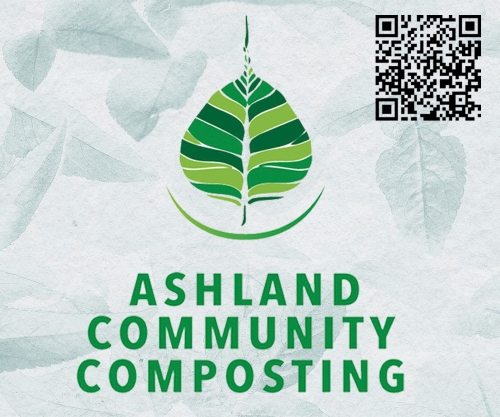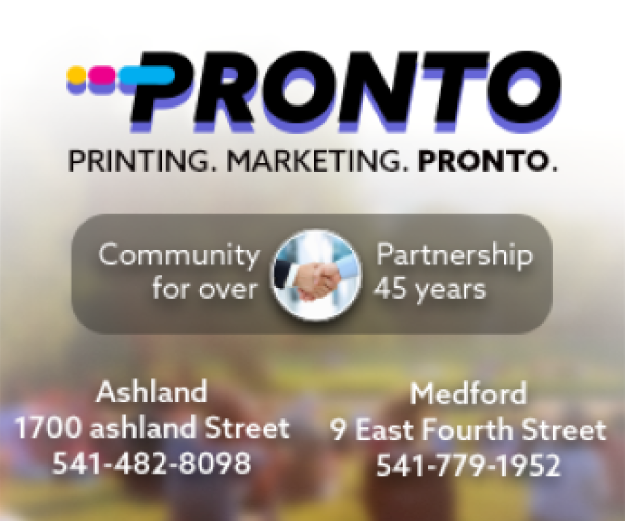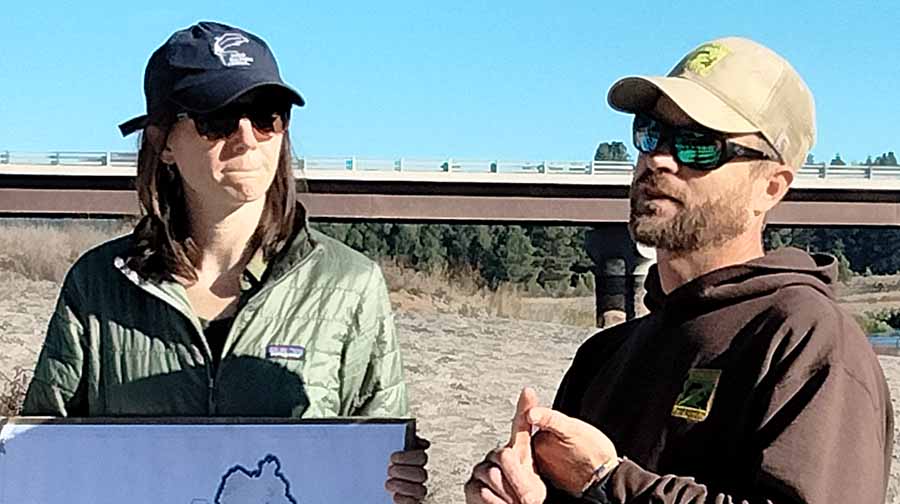An interview with Kenwani Kravitz, an enrolled tribal member of the Madesi Band of the Pit River Nation
By Barbara Cervone
Kenwanicahee (Kenwani) Kravitz became the new Native Nations Liaison at Southern Oregon University in February 2024. As an enrolled tribal member of the Madesi Band of the Pit River Nation and a descendant of the Northern Wintu people and a strong scholarly background, Kravitz brings a deep knowledge and a gentle but determined voice to this exciting new role.
Q: What has been your pathway?
A: I come from a long line of leaders and activists, was raised within my traditional ceremonies and come from a strong community. It has always been at the forefront of my mind that I have a responsibility to support and advocate for my people.

I was a nontraditional student. I wanted to be a teacher when I was younger but dropped out as a young mother. I longed to go back to college, but I never found the time while raising my five children and running a business. It was only after my children were grown that I decided to go back to college. I had gone to school in Washington for undergrad, but I realized that it was important for the work that I did, advocating for my community, to pursue an education in Indian law. I went on to receive a Master’s in Legal Studies, with an emphasis in Indian law and self-government, from Arizona State University.
Before coming to SOU, I ran a business and held a variety of positions in Indian country. I’ve sat on and continue to sit on various community boards, including the Shasta County Office of Education Native American Advisory Board where I develop curriculum and advocate for equitable access for Native students.
Q: On whose shoulders do you stand?
A: Although there are many on whose shoulders I stand, the most significant person that comes to mind is my grandmother, Myrtle. She was Pit River, she was the first Native student to graduate from Shasta College, and she went on to become counselor for Native students. She was an activist in her own right, fighting for the rights of our Native people — especially for Indian education.
Q: What have been some of the biggest challenges in your work so far at SOU?
A: One of the hardest challenges I have faced is identifying and connecting with all of our Native students on campus. Although this is not unique to working at SOU, being a liaison and building bridges is not easy. For me, this can mean sharing my people’s story over and over again, our history, our values, our truths — a story that contradicts the historical narrative that American society has been taught.
One of the things I practice is remaining heart forward, not taking offense at someone’s lack of knowledge and understanding. I know it is necessary to build bridges steadily, to come back to the table, to remain heart forward, to continue the conversations even though they are hard, even though sometimes you may have tears.
Much has happened already at SOU, for which I am grateful. In some ways it is a miracle that I am here, that I have the voice that I do, and I credit the hard work of many Native people and allies that advocated for this. My office is in the administrative building, above the President’s office. This sends an important message about the value of Native students and government-to-government relationships with the Tribes.
“Unheard Voices”: An interview with SOU Native Nations Liaison Kenwani Kravitz
Q: For Native American students who attend SOU (in 2023, 1.3% of the students were Native American), what are their biggest challenges?
A: Our students arrive from various backgrounds. Some come straight from their reservations while others come from more urban communities. Some are very connected to their culture, others are not. Seeing themselves represented in places and spaces is so important, knowing that there is someone there for them that understands, someone that looks like them that they can connect and relate to is so important. This creates a space where they feel safe and comfortable, which then translates to success.
One of our core values in Indian country is reciprocity. Our Native students, oftentimes, return to their communities to give back. For my part, I feel I am here as a relative, as an advocate, a mentor, to support their success in whatever way I can.
Indigenous Peoples Day
Southern Oregon University’s celebration of Indigenous Peoples Day on Saturday and Sunday, Oct. 19 and 20, in Stevenson Union on the SOU campus will include speakers, food, an Indigenous artisans market, dancers and activities. Grand entry is set for 10:30 a.m. on Saturday, with welcoming from 11 to noon. A salmon lunch will be available from noon to 4 p.m. ($10/plate, cash only). Guest speakers and open sharing are planned from 1 to 4 p.m.
Sunday’s celebration runs from 10:30 a.m. to 4 p.m., with Indian tacos and fry bread hosted by SOU NASU (cash only), and guest speakers and open sharing all day.
Q: Ashland Together, as you know, envisions a community that welcomes all, a circle dedicated to racial and social healing. What, in practice, would such a community look like?
A: I think it would be a place where everyone had a voice at the table, where every voice mattered. It’s so simple to say that, right, but it’s not our reality. That’s what it would look like to me. Our voices have been silenced for too long. Since America was established on our ancestral homeland, our people must have a say in matters that impact our people and the continuation of our nation. We are reclaiming our voice and our rightful place.
Q: If you could talk to a younger version of yourself, what would you say?
A: There is a word in my Wintu language, “beediyalumina,” which means “never give up.” As I mentioned earlier, I stand on the shoulders of some amazing people who have done incredible work. Even if it did not look like there was movement, there was and they didn’t give up. And here we are today, the dams are breaking, they are literally being removed! So I continue to tell myself and the future generations, beediyalumina, to keep moving forward, to be the person your ancestors prayed for.
Q: What gives you joy?
A: My grand babies! Making baskets, being on the mountain or on the river, doing the work I know I’m supposed to do for our people, that brings me joy as well.
This article and video were created by Barbara Cervone for Ashland Together as a contribution to Ashland.news’ “Unheard Voices” section. Ashland resident Cervone is founder of What Kids Can Do, Inc., earned a bachelor’s degree and a doctoral degree in education from Harvard University, and coordinated Walter H. Annenberg’s $500 million “Challenge” to reform America’s schools — at the time the largest private initiative to reform public education in U.S. history — from its inception in 1994 until 2000. Email her at [email protected].
Oct. 16: Reference to Native Nations Liaison being a new position removed from the story. The position was previously held by Brent Florendo.
Nov. 7: Reference to Native Nations Liaison being a new position removed from the second headline.



















